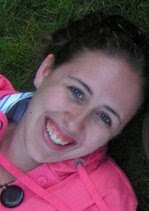Our vision is to create a scientifically literate population that can thrive in a world increasingly driven by information and technology. Our vision for the future is a global community where students command their own destinies by developing skills in decision making, teamwork, problem solving, and communication. This vision is based on a realistic assessment of the skills needed for success in the 21st century.
Challenges
Perhaps at no other time in our nation's history has the need for continuing excellence in education been as essential. A recent Gallup survey found that Americans overwhelmingly recognize the critical role science and technology play in our national security. And NASA has begun preparations for its ambitious return to manned missions to the Moon and possibly beyond.
However, research indicates that the United States is losing its worldwide dominance in critical areas of science and innovation. The National Science Foundation finds that there is a decrease in the number of students enrolling in undergraduate and graduate studies in engineering, physical sciences, and mathematics. The National Assessment of Educational Progress reports that 47 percent of twelfth graders scored "below basic" in science skills.
Offering Solutions
Throughout our history, Challenger Center has developed a kaleidoscope of education innovations that serve as a launch pad to learning. Our network of Challenger Learning Centers, diverse classroom programming, and community outreach programs, excite students' natural curiosities and encourage them to learn.
Innovative teacher training workshops give instructors a deeper understanding of how to teach the subjects of science and mathematics, as well as confidence that the programs they are using are content-rich and consistent with current scientific understanding. All Challenger Center programs are developed by staff educators and space scientists to ensure accuracy in content and methods of instruction.









No comments:
Post a Comment